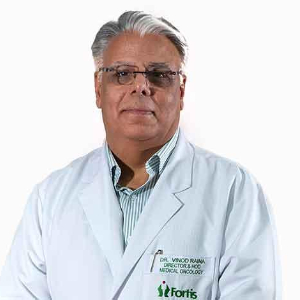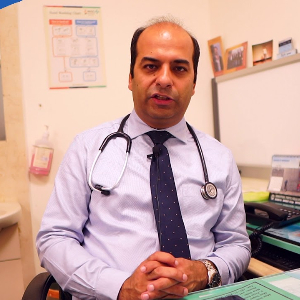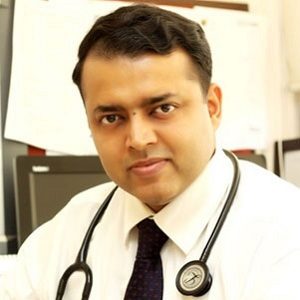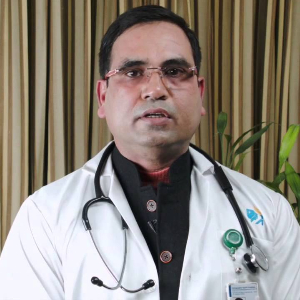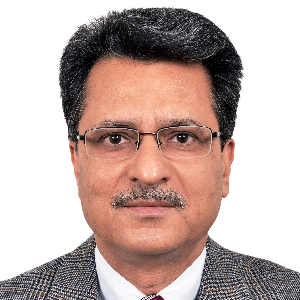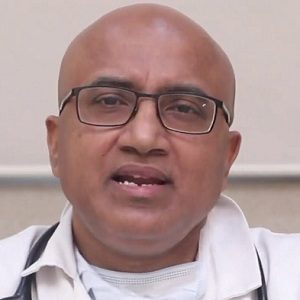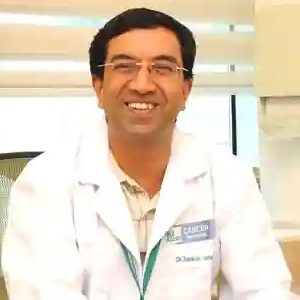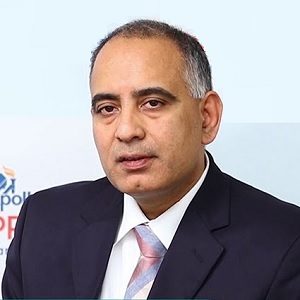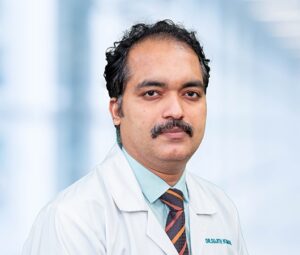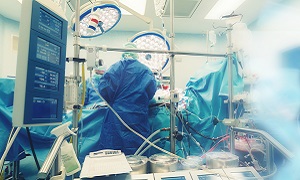Anal Cancer Treatment
Anal cancer is a type of cancer that forms in the tissues of the anus. The anus is the last part of the digestive tract, through which stool leaves the body. Anal cancer is different from colorectal cancer, which starts in the colon or rectum.
Who Treats Anal Cancer?
Anal cancer is treated by a team of healthcare professionals, each specializing in different aspects of cancer care. The primary specialists involved in treating anal cancer include:
- Medical Oncologist: Specializes in the treatment of cancer using chemotherapy, immunotherapy, and targeted therapy.
Manages systemic treatment and overall care during and after treatment. - Radiation Oncologist: Specializes in treating cancer with radiation therapy. Designs and oversees radiation treatment plans to target cancer cells while minimizing damage to surrounding tissues.
- Surgical Oncologist: Specializes in the surgical removal of tumors and affected tissues. Performs procedures such as local resection or abdominoperineal resection, depending on the cancer stage and location.
- Gastroenterologist: Specializes in diseases of the gastrointestinal tract.
May be involved in the diagnosis and initial assessment of anal cancer. - Pathologist: Examines tissue samples to diagnose cancer and determine its type and stage. Plays a crucial role in confirming the diagnosis and guiding treatment decisions.
- Radiologist: Specializes in imaging studies like CT scans, MRI, and PET scans to diagnose and stage cancer. Helps monitor the effectiveness of treatment.
- Practitioner/Oncology Nurse: Provides care, education, and support to patients throughout their treatment journey.
Assists with symptom management and coordinates care among different specialists.
8. Supportive Care Specialists - Dietitian: Provides nutritional support to help manage side effects and maintain strength during treatment.
- Psychologist/Psychiatrist: Offers mental health support to help patients cope with the emotional impact of cancer.
- Palliative Care Specialist: Focuses on improving quality of life by managing symptoms and providing supportive care.
- Multidisciplinary Approach: Anal cancer treatment often involves a multidisciplinary approach where these specialists work together to create and implement a comprehensive treatment plan tailored to the patient’s specific needs. This collaborative approach ensures that all aspects of the patient’s health and well-being are addressed during their cancer journey.
Best Hospitals in India for Anal Cancer Treatment
Following are the most reputed hospitals in India with excellent oncology teams and great expertise in treating anal cancer patients with the most advanced treatment options.
- City: Gurugram, India
Hospital Highlights:
- One of India’s best and largest multi-specialty hospitals, Medanta was built with the aim to bring India to the highest standards of medical care. The hospital has been providing the best medical services to its patients, since its inception, with care, commitment, and compassion.
- Equipped with 1250 beds, the hospital was founded by Dr. Naresh Trehan in the year 2009 with an aim to provide the best medical care at affordable costs. The hospital is spread across 43 acres and includes 45 operation theatres and 350 beds dedicated solely to ICU. The hospital includes over 800 doctors, and more than 22 specialty departments and has a dedicated floor for individual specialty in order to offer the best services under one roof.
- The hospital is considered one of the premier institutes in India for Cardiac Care and includes staffs and members of high caliber. The hospital has 6 distinct centers of excellence.
- City: Gurugram, India
Hospital Highlights:
- Artemis Hospital, established in 2007 in Gurugram, India, is a leading multi-specialty institution known for its excellence in patient care and advanced medical technology, offering comprehensive services across specialties like Cardiology, Oncology, Neurology, Orthopedics etc.
- Renowned for its patient-focused care, Artemis Hospital combines state-of-the-art infrastructure with a team of internationally trained doctors and surgeons, ensuring the highest standards of medical treatment.
- Accredited by JCI and NABH, Artemis Hospital meets global healthcare quality and safety standards, reflecting its commitment to providing compassionate, personalized care.
- The hospital is recognized for utilizing cutting-edge diagnostic and ther*peutic techniques, ensuring patients receive accurate diagnoses and effective treatments tailored to their needs.
- City: Chennai, India
Hospital Highlights:
- The Apollo Proton Cancer Centre in Chennai is the most sought-after private cancer hospital in India. It is an integrated facility that provides cutting-edge, all inclusive cancer treatment to patients all over the globe.
- The hospital is a part of the renowned Apollo Group which has a large network of over 74 hospitals in India and across the globe. Out of the 74 hospitals, 21 of them are cancer centres. However, Apollo Proton Cancer Centre is the only cancer hospital to have JCI accreditation.
- The Centre, which was established on the principles of excellence and expertise, unites a formidable medical staff led by some of the most illustrious figures in cancer treatment.
- The hospital follows the global ASTRO Model Policy. It is the same global policy which is followed by countries like USA, UK, and Europe.
- Apollo Proton Cancer Centre is among the very few hospitals in India to receive patients from First World countries such as USA, Canada, New Zealand, Australia, Singapore, Thailand, etc.
- Apart from that, it is also the first hospital in Chennai to receive patients from several countries like Uzbekistan, Kazakhstan, Turkmenistan, Georgia, Armenia, Azerbaijan, SAARC countries (Bangladesh, Nepal, Sri Lanka, Maldives, Bhutan, Afghanistan, and Pakistan), South Africa, Turkey, Egypt, etc.
- In fact, there is a dedicated team at the Apollo Proton Cancer Centre that serves only international patients. Thus, on a monthly basis, the Centre receives patients from across 32 countries.
- Moreover, there are certain treatments in Apollo Proton Cancer Centre that are not available in any other centre. APCC addresses all types of possible cancers that are usually not covered by any other centre.
- City: New Delhi, India
Hospital Highlights:
- Over the last 33 years, the Fortis Escorts Heart Institute has set new standards in cardiac treatment with groundbreaking research. It is now known around the world as a centre of expertise for Cardiac Bypass Surgery, Interventional Cardiology, Non-invasive Cardiology, Paediatric Cardiology, and Paediatric Cardiac Surgery.
- The hospital has cutting-edge laboratories that perform a wide range of diagnostic tests in Nuclear Medicine, Radiology, Biochemistry, Haematology, Transfusion Medicine, and Microbiology.
- Fortis Escorts Heart Institute boasts a diverse group of bright and experienced doctors who are backed up by a team of highly qualified, experienced, and devoted support professionals as well as cutting-edge equipment such as the recently installed Dual CT Scan.
- Approximately 200 cardiac doctors and 1600 personnel currently collaborate to manage over 14,500 admissions and 7,200 emergency situations each year. The hospital now has a 310-bed infrastructure, as well as five cath labs and a slew of other world-class amenities.
- City: Gurugram, India
Hospital Highlights:
- Fortis Memorial Research Institute (FMRI) is a premier multi-super-specialty, quaternary care hospital, known for its exceptional international faculty, top-tier clinicians, super-sub-specialists, and specialized nurses, all supported by cutting-edge technology.
- It is the flaship hospital of Fortis Healthcare Limited, part of IHH Healthcare Berhad, a leading integrated healthcare services provider in India. As one of the country’s largest healthcare organizations, Fortis operates 28 healthcare facilities with over 4,500 operational beds (including O&M facilities) and more than 400 diagnostic centers (including joint ventures).
- Recognized as one of the top hospitals in India, FMRI serves as a leading referral center and aspires to be the ‘Mecca of Healthcare’ for India and beyond. Its 11-acre campus is a testament to its commitment to providing world-class healthcare.
- Accredited by JCI and NABH, FMRI is dedicated to maintaining the highest standards of healthcare quality and safety, ensuring that every patient receives the best possible care. The hospital’s reputation is further enhanced by its state-of-the-art facilities and innovative medical practices.
- City: New Delhi, India
Hospital Highlights:
- The Indian Spinal Injuries Center (ISIC), provides state-of-the-art facilities for the management of all types of spinal ailments.
- Staffed with internationally trained, acclaimed, and dedicated spine surgeons, the hospital provides cutting-edge medical & surgical technology. The hospital provides comprehensive management of spinal injury, back pain, spinal deformities, tumors, osteoporosis, etc.
- The hospital performs motion-preserving spine surgeries including disc replacement and dynamic fixation, and minimally invasive spine surgeries such as endoscopic disc excision.
- The orthopedic service of the hospital covers all orthopedic ailments including trauma, joint diseases & replacements, oncology, pediatric orthopedics & upper limb ailment.
- City: Faridabad
Hospital Highlights:
In the sprawling city of Faridabad, where healthcare needs are diverse and ever-evolving, one institution has consistently stood out as a beacon of excellence in the field of medicine—Marengo Asia Hospital. Established with a vision to provide world-class healthcare services to the community it serves, Marengo Asia Hospital has emerged as a trusted name synonymous with quality, compassion, and innovation in healthcare.
- City: New Delhi, India
Hospital Highlights:
- Indraprastha Apollo Hospital is a 700-bedded multispecialty hospital in the heart of the capital of India. It is a part of Apollo Hospital group, one of India’s most reputed healthcare chains. Indraprastha Apollo Hospital has been accredited by Joint Commission International, making it the first internationally accredited hospital in the country in 2005.
- There are 52 specialties in the hospital with one of the best cardiology centers in the country. The hospital is also equipped with State of the art infrastructure facilities with the largest Sleep Lab in Asia and the largest number of ICU bed facilities in India.
- The latest and highly advanced technologies that are installed in the hospital include Da Vinci Robotic Surgery System, PET-MR, PET-CT, Cobalt-based HDR, Brain Lab Navigation System, Tilting MRI, Portable CT scanner, 3 Tesla MRI, 128 Slice CT scanner, DSA Lab, Endosonography, Hyperbaric Chamber and Fibro scan.
- City: New Delhi, India
Hospital Highlights:
- One of the well-regarded providers in India committed to the highest standards of clinical excellence and patient care, Max Super Specialty Hospital is a part of Max Healthcare, which is the second-largest healthcare chain in India. Regarded as one of the most well-regarded healthcare providers in the country, Max Super Specialty Hospital is committed to the highest standards of clinical excellence as well as patient care. The hospital is also equipped with the latest technology as well as cutting-edge research. The hospital is known to deliver and ensure the highest level of patient care.
- The hospital has more than 500 beds and offers treatment for over 35 specialties. The hospital also holds the credit of having installed the first Brain Suite in Asia. This is a highly advanced Neurosurgical machine that allows MRI to be taken while surgery is ongoing.
- Other advanced and latest technologies are also installed in the hospital such as the 1.5 Tesla MRI machine, 64 Slice CT Angiography, 4D ECHO, LINAC, and 3.5T MRI machine.
- City: Kolkata, India
Hospital Highlights:
- Founded in 2017, the HCG EKO Cancer Centre is a committed, all-inclusive cancer care facility in Kolkata.
- The hospital was collaboratively established by India’s leading cancer care provider HCG (HealthCare Global Enterprises Ltd.), and EKO Diagnostic Pvt. Ltd., a top diagnostic and imaging chain in Eastern India.
- With 88 beds, the hospital provides a full spectrum of services including diagnosis, prevention, screening, second opinions, treatment, rehabilitation, follow-up, and palliative care.
- Additionally, the hospital contains a day-care chemotherapy ward, Neutropenic ward, medical ICU, pharmacy, blood bank, and an IPD wing.
- At HCG EKO Cancer Centre Kolkata, a large team of cancer experts with experience in medical oncology, surgical oncology, radiation oncology, hemato oncology, BMT, and nuclear medicine collaborate to offer a variety of treatment options under one roof.
- Furthermore, the hospital is also known for employing the most advanced radiation technology such as, the Radixact, a next-generation TomoTherapy equipment that provides greater radiation delivery precision.
Best Doctors in India for Anal Cancer Treatment
- Medical Oncologist, Gurugram, India
- Over 40 years’ experience
- Fortis Memorial Research Institute
Profile Highlights:
- Dr. Vinod Raina is a distinguished figure in the field of Medical Oncology in India, with over 40 years of exemplary experience. He is currently associated with Fortis Memorial Research Institute in Gurugram where he is functioning as the Director and Head of Medical Oncology and Hematology.
- His primary expertise lies in Chemo treatment and is the first to perform high-dose chemo in India. He also performed the first peripheral blood BMT in India.
- Additionally, Dr. Raina possesses specialized expertise in treating a wide spectrum of cancers including Breast Cancer, Lung Cancer, Gastrointestinal Cancer, Urological Cancer, Gynecological Cancer, Lymphoma, and Myeloma. His contributions extend to performing approximately 400 BMTs, enhancing treatment options for various cancers.
- Medical Oncologist, Gurugram, India
- 15+ years’ experience
- Fortis Memorial Research Institute
Profile Highlights:
- Dr. Ankur Bahl is a distinguished Senior Director of Medical Oncology at Fortis Memorial Research Institute (FMRI), Gurugram, with over 15 years of extensive experience in the field of oncology.
- Dr. Bahl completed his MBBS and MD in Medicine from Maulana Azad Medical College, Delhi. He further specialized by earning a DM in Medical Oncology from the prestigious All India Institute of Medical Sciences (AIIMS), New Delhi.
- His clinical expertise encompasses a broad range of oncology treatments, including immunotherapy, targeted therapies combined with chemotherapy, hormonal therapy, as well as supportive and palliative care.
- Top Medical Oncologist | Apollo Hospital, New Delhi, India
- 20+ Years Experience
- Indraprastha Apollo Hospital, New Delhi
Profile Highlights:
- Dr. Manish Singhal is a highly experienced medical oncologist based in South Delhi, with a distinguished career spanning over 20 years. Currently, he is practicing as a Consultant in Medical Oncology at Apollo Hospital, New Delhi.
- Dr. Singhal is widely recognized as one of the top medical oncologists in the region, celebrated for his expertise in delivering personalized treatment plans tailored to each patient’s unique needs.
- Specializing in the diagnosis and treatment of various cancers, including breast, lung, oral, melanoma, and osteosarcoma, Dr. Singhal offers comprehensive care that includes advanced treatments like BMT, hormone treatment for prostate cancer, and chemotreatment for hematological malignancies.
- He employs state-of-the-art diagnostic techniques to ensure precise diagnoses, enabling him to craft individualized treatment strategies that optimize efficacy while minimizing side effects.
- Top Medical Oncologist | Apollo Hospital, New Delhi, India
- 20+ Years Experience
- Indraprastha Apollo Hospital, New Delhi
Profile Highlights:
- Dr. P.K. Das is a highly esteemed medical oncologist in Delhi, renowned for his extensive experience spanning over 20 years.
- His practice is dedicated to providing comprehensive and compassionate care to patients grappling with various types and stages of cancer.
- Specializing in medical oncology, Dr. Das possesses profound expertise in diagnosing and treating cancers affecting diverse organs including breast, lung, colon, prostate, pancreas, liver, and kidney.
- Medical Oncologist: Artemis Hospital
- Over 10 Years' Experience
- Artemis Hospital, Gurgaon
Profile Highlights:
- Dr. Priya Tiwari is a distinguished Medical Oncologist based at Artemis Hospitals in Gurugram, renowned for her expertise in comprehensive cancer care.
- She has 10 years of experience.
- Her medical education includes an MD in Medicine and a DM in Medical Oncology from AIIMS, alongside an MBBS degree from IMS, BHU, where she was a gold medalist.
- Medical Oncologist, Gurugram, India
- Over 30 years’ experience
- Medanta-The Medicity, Gurgaon
Profile Highlights:
- Dr. Ashok Kumar Vaid is a reputed Medical Oncologist in India with expertise in the treatment of blood, lung, skin, breast, and gastrointestinal cancers.
- He is famously known for performing among the first 25 BMTs in a private hospital in India.
- Dr. Vaid’s primary area of focus lies in Leukemia, Lymphoma, Solid tumors, and the treatment of organ-specific benign and malignant tumors.
- He prefers to treat his patients using non-surgical and pain-free techniques that include Hormone Medicine, Biological Treatment, Targeted Treatment, and Chemo Treatment.
- Top Medical Oncologist | Apollo Hospital, New Delhi, India
- 15+ Years Experience
- Indraprastha Apollo Hospital, New Delhi
Profile Highlights:
- Dr. Dipanjan Panda is one of the well-known medical oncologists in India, having 15 years of expertise in treating bone and soft tissue cancers and gastrointestinal cancers.
- He is credited with starting the country’s first anticancer departments and PDCC program. Dr. Panda developed a medical oncology unit at Indraprastha Apollo Hospital in New Delhi, in association with the Institute of Liver and Biliary Sciences. He is currently working at Indraprastha Apollo Hospital in New Delhi as a Senior Consultant, Medical Oncology.
- Dr. Panda has written twenty peer-reviewed papers in national and international journals. He has presented numerous talks at global forums.
- Medical Oncologist, Chennai, India
- Over 28 years’ experience
- Apollo Cancer Centre Chennai
Profile Highlights:
- Dr. Sankar Srinivasan is one of the top Medical Oncologists in India with proficiency in cancer management for about 28 years.
- He got certified in Internal Medicine, Medical Oncology, and Hematology from American Board to enhance his skills.
- Dr. Srinivasan is placed in the best 10% of the Hematologists boards.
- He is an active member of several International Medical Association Boards.
- Medical Oncologist and BMT Specialist, Chennai, India
- Over 25 years’ experience
- Apollo Cancer Centre Chennai
Profile Highlights:
- Dr. Raja T is a renowned Medical Oncologist from Tamil Nadu who is currently serving as the Director of Medical Oncology at Apollo Cancer Centre in Chennai.
- He is well proficient in conducting a number of cancer procedures such as Cancer Screening, Chemo Treatment, PICC Line Insertion, BMT, Pap collection, lymphoma, Renal Cell Cancer management, and Head and Neck Tumor.
- Along with his clinical practice, Dr. Raja T is also a renowned veteran who has been the Principal Investigator for several clinical studies, a published author for journals, and a teacher.
- Medical Oncologist, Chennai, India
- Over 12 Years Experience
- Apollo Proton Cancer Centre
Profile Highlights:
- Based in Chennai, Dr. Sujith Kumar Mullapally is a skilled Medical Oncologist who is currently practicing as a Consultant Medical Oncologist at the Apollo Proton Cancer Centre, Chennai.
- Dr. Mullapally is quite versatile as he specializes in a range of oncology specialties. Thoracic Oncology, Neuro-Oncology, Head & Neck Oncology, Genitourinary Oncology and Bone & Soft Tissue Tumors are just a few of his expertise. In addition, he has a great deal of interest in Immuno-Oncology and Preventive Oncology.
- To detect various cancer forms early on, Dr. Mullapally uses cutting edge diagnostic methods including biopsies and imaging tests (X-rays, CT scans).
- As a specialist, Dr. Mullapally is aware of the difficulties in identifying and managing cancer. So as soon as a patient notices symptoms or has worries about their health, he advises them to consult a specialist who can offer more focused treatment.
- Following a diagnosis, Dr. Mullapally develops individualized treatment plans for patients that might involve immuno treatment, chemo treatment, radiation treatment, or surgery. These treatments are intended to minimize adverse effects while optimizing efficacy, and they are customized to meet the specific needs of every patient.
ANAL CANCER
Anal cancer occurs when cancer cells form tumors in the tissues of the anus. The anus is the small opening located at the lower end of the intestines. This condition causes signs and symptoms such as anal pain and rectal bleeding.
It is an uncommon form of cancer occurring in the anal canal. This canal is a short tube at the rectum end that allows stools to leave your body.
Generally, anal cancer is rare, but when it occurs, it can spread to other parts of the body. If you develop any of the signs and symptoms of this condition, then it is best to see your doctor immediately.
Symptoms
Symptoms of anal cancer can be similar to those of hemorrhoids, gastrointestinal diseases, and irritable bowel syndrome.
These include:
- Changes in bowel habits
- Thin Stools
- Discharge from the anus or itching
- Bleeding from the Rectum
- Pain, Pressure, or the Formation of a lump near the anus
- A growth or mass in the anal canal
- Anal itching
If you experience any of these symptoms and aren’t sure of the cause, then it is best to go to your doctor for evaluation. They will be able to do certain tests to diagnose if these symptoms belong to anal cancer.
Causes & risk factors
Anal Cancer generally develops when due to a genetic mutation, normal and healthy cells turn into abnormal cells. Healthy cells grow and multiply at a set rate, eventually dying at a set time. Abnormal cells grow and multiply out of control, and they don’t die either. Thus, these accumulating abnormal cells form a mass or a tumor. Cancer cells invade nearby tissues and may separate from an initial tumor and spread elsewhere in the body.
Anal cancer is also related to a sexually transmitted infection known as human papillomavirus or the HPV virus. This HPV virus is detected in the majority of anal cancers and is therefore considered to be the most common cause of anal cancers.
Several factors are known to increase the risk of anal cancer. Some of these include:
- Older age- Most cases of anal cancer are generally seen in people aged 50 or older.
- Having many sexual partners- People who have many sexual partners over their lifetime generally have a greater risk of this condition.
- Anal sex- People who engage in receptive anal sex also have an increased risk of anal cancer.
- Human papillomavirus (HPV)- The HPV infection can increase your risk of several cancers, which also include anal cancer. HPV infection is a sexually transmitted infection which might cause genital warts as well.
- Smoking- Smoking cigarettes also increase the risk of anal cancer.
- Having a history of cancer- Those who have had cervical, vulvar or vaginal cancer are at an increased risk of anal cancer.
- Immunosuppressive drugs- Some people take drugs to suppress their immune systems. This includes people who have received organ transplants. They may have an increased risk of anal cancer. The HIV virus also suppresses the immune system and can increase the risk of anal cancer.
Diagnosis
People who are at high risk for anal cancer can be diagnosed by screening tests, such as the digital rectal exam or anal Pap test. A doctor might also find anal cancer during a routine physical exam or during a minor. Treating cancers that are found in this way is very effective since the tumors are found early.
Generally, a doctor first asks about your medical history if you have any symptoms of anal cancer. Your doctor will also examine you to look for signs of anal cancer, as well as other health problems. If any problems are found, your doctor is going to require a few other exams or tests to find the cause of cancer. A few more tests can be required, which include the following:
Digital rectal exam
Anoscopy
For anoscopy, a doctor uses a short, hollow, firm tube called an anoscope, which may have a light on the end of it. The anoscope is coated with a gel and then gently it is gently pushed into the anus and the lower rectum.
The doctor is able to have a clear view of the lining of the lower rectum and anus. Samples from abnormal areas can be taken at the same time, to be tested in the lab. During this test, you will be conscious but it doesn’t usually hurt.
Rigid proctosigmoidoscopy
Endoscopy
Biopsy

If a change or abnormal growth is detected during an endoscopic exam, then your doctor is going to need to take out a piece of it so that it can be determined in the lab if it’s cancerous. This is called a biopsy. If the growth is in the anal canal, it may be through the scope itself. Sedative drugs may be used to numb the area before the biopsy is taken. If the tumor is too small, your doctor might try to remove the entire tumor during the biopsy.
Blood tests
If you have risk factors for HIV, your doctor is likely going to order a blood test to check for it. This information is important since HIV positive patients require treatment for HIV so that their immune system is healthy again before they undergo cancer treatment.
Ultrasound
Ultrasound uses sound waves for creating images of the internal organs or masses. This can help to see how deep cancer has grown into the tissues near the anus. Although for most ultrasound exams, a transducer is moved around on the skin, for anal cancer, the transducer is put into the rectum. Although the test can be uncomfortable, it generally doesn’t hurt.
Computed tomography (CT) scan
Magnetic resonance imaging (MRI)
MRI scans use radio waves along with strong magnets. Contrast material may be injected into a vein before the scan to see details better.
This test is also used to see if nearby lymph nodes are enlarged, which is an indication that cancer has spread there. MRI can also be used to look at abnormal areas in the liver or the brain and spinal cord that could be cancer spread.
Chest x-ray
Positron emission tomography (PET) scan
Treatment
The treatment you receive for anal cancer generally depends on several factors, which include your overall health, the stage of your cancer, as well as your own preferences.
In most cases, anal cancers are treated with a combination of chemotherapy and radiation. Together these two treatments can enhance the chances of having a cure.
Chemotherapy
In Chemotherapy method, drugs are injected into a vein, or taken as pills. These chemicals travel throughout the body and rapidly kill growing cells, including the cancer cells. However, they also cause damage to some of the healthy cells, and this can cause certain side effects, like vomiting, nausea, and hair loss.
Radiation therapy
Radiation therapy involves using high-powered beams like X-rays and protons, to kill the cancer cells. During the procedure, you are positioned on a table, and a large machine moves over you and directs the radiation beams to specific areas of your body to target cancer.
However, it is to be noted that radiation can also damage any health tissue near where the beams are aimed. Side effects can include skin redness and sores in and around the anus, as well as hardening and shrinking of your anal canal.
For anal cancer, radiation therapy is generally required for five to six weeks.
Though the combination of chemotherapy and radiation makes the treatments more effective, side effects become more likely. You can talk to your doctor regarding the side effects you can expect.
Depending on the stage of your cancer, your doctor might also recommend surgery.
Surgery for removal of early-stage anal cancers
Small anal cancers can be removed through surgery. During the procedure, the surgeon will remove the tumor and a small amount of healthy tissue surrounding it.
Since the tumors are small, early-stage cancers can sometimes be removed without causing any damage to the anal sphincter muscles surrounding the anal canal.
Depending on your cancer, your doctor may also recommend chemotherapy and radiation after surgery.
Surgery for cancer that hasn't responded to any other treatments
If your cancer is not responding to chemotherapy and radiation, your doctor might recommend a more extensive operation which is known as abdominoperineal resection, also called AP resection. During this method, the surgeon will remove the anal canal, rectum along a portion of the colon. The surgeon then attaches the remaining portion of your colon to an opening or stoma in your abdomen through which waste is able to leave the body and collect in a colostomy bag.
Immunotherapy
Palliative care
Alternative Medicine
This treatment cannot cure cancer but help the patients cope with any side effects of cancer. This type of treatment provides additional comfort and complements your current treatment from the doctor.
- Nausea: Hypnosis, acupuncture, music therapy
- Anxiety: massage, hypnosis, exercise, meditation, relaxation technique, music therapy
- Sleep problems: Relaxation technique or yoga
- Fatigue: Tai chi or gentle exercise
- Pain: Massage, hypnosis, acupuncture, music therapy
Coping and support
- Ask your doctor about the details of anal cancer which include its staging, type, prognosis, and treatment.
- Stay in close contact with your friends or family who will take care of you and support you.
- Find someone whom you can talk to whether a family member or a friend. You may also take the help of a support group and be a part of any of those communities.
Complications
Prevention
Although there is no way of preventing anal cancer, you can reduce the risk of the same.
- Getting vaccination for HPV: Vaccines are available that you can take to protect yourself from HPV infection. Whether you are an adult or a teenager and a boy or a girl, you can get the vaccine.
- Quit smoking: If you are having the habit of smoking, you must quit the same immediately as smoking can increase your risk of developing anal cancer.
- Practicing safer sex: It helps to prevent both types of sexually transmitted viruses- HIV and HPV that increase your risk of developing anal cancer.











